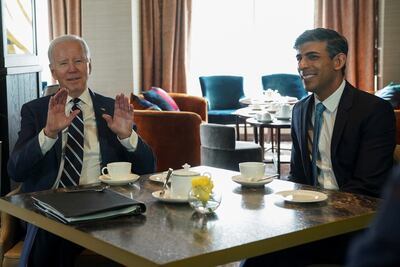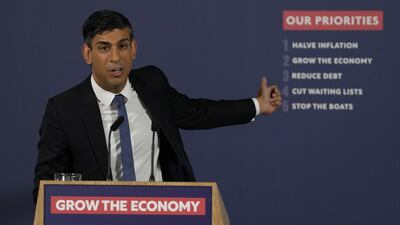It was raining on one of my recent morning dog walks along the beach. On days like this on the south coast of England, I’m often walking alone through the rain.
I could see two fishermen sheltering in a tent while watching their rods for signs that mackerel were taking their bait. Then, as the rain eased, I saw a man and a woman, middle-aged, wrapped up against the weather, bending down. They were walking steadily along the pebbles, picking up litter and putting it into two buckets.
In truth, there isn’t much litter here. Local people — my neighbours — are careful about keeping the beach clean, although at the high water mark there are sometimes plastic bottles or food packaging washed up by the tide. Litter volunteers turn up at weekends and while they don’t enjoy cleaning up other people’s mess, they do like to give something back to the community, and do a little good for planet Earth. It’s a cheering sight — even in the rain — in difficult and often distrustful times.

Last year, the British Office for National Statistics reported on who British people trust — and who they don’t. The good news is that “three-quarters of the UK population reported that they are trusting of most other people, higher than the average among OECD countries who participated in the survey (67 per cent)”.
The bad news is that only around a third (35 per cent) of the UK population trust the British government. This was markedly lower than the average across the OECD countries (41 per cent).
Just about half (49 per cent) of the population said they did not trust the Westminster government at all, although some key British public institutions were trusted. The National Health Service was most trusted (80 per cent), followed by the courts and legal system (68 per cent). High levels of trust in our fellow citizens and in institutions that try to keep us healthy and safe is clearly good news. And while very low trust in the British government is disappointing it’s not surprising.
We are two weeks away from local elections across most of England and they may reflect our political unease. As I returned home from the beach, a car pulled up beside me. The driver was a local woman who campaigns on environmental issues for the Green party. The Greens have been campaigning hard in coastal areas like this against sewage being dumped in the sea. The Green campaigner said they were hopeful of picking up council seats from the Conservatives, who for years have run the local council.
All the main opposition parties seem confident that after 13 years of Conservative governments, people want a change. Council elections are of course local. But national issues, including the cost of living crisis, the failures of Brexit and the constant grinding strikes affecting everything from schools to the health service and transport colour the national mood. It’s sour.
Conservative activists are nervous. Some government MPs have even cut the word “Conservative” from their social media accounts, which is hardly a sign of confidence in their party. Labour appears to be polling significantly ahead — around 20 per cent above the Conservatives — and these elections will be the biggest test of English public opinion until prime minister Rishi Sunak calls a general election, expected in October 2024.

Mr Sunak desperately needs a boost. His meeting with US President Joe Biden was — to put it politely — not a success. Conservative-supporting British newspapers attacked the US president for favouring Ireland in the post-Brexit disputes that have paralysed politics in Northern Ireland, but it is Mr Sunak who is in trouble. His “special relationship” with the US looks special only in being especially poor. Having alienated much of the EU and now being disdainful towards a US president is an odd strategy for supposedly “Global Britain”.
Besides, Mr Sunak owes his job as prime minister not to the British public voting for him, and not even to support from Conservative party members. He became leader only after the shambolic time of Boris Johnson and Liz Truss. Conservative MPs stepped in to put Mr Sunak in the top job to try to calm things down. In that he has been largely successful. But democratic politics is often not about voting for someone you like, but voting to keep those you don’t like out of power.
The slogan “Turn the Rascals Out” was famously used in the US in the 1870s by those tired of political scandals and corruption. It may well be the story of England in these local elections and across all of the UK in the 2024 general election.
When I watched those local volunteers cleaning up our beach in the rain, I did wonder about the little battalions of carers, health workers, teachers, railway workers, junior doctors and all those decent and helpful people who work hard, pay their taxes and trust their neighbours but who are enduring hard times and who do not trust our government. What would make them change their distrust?
Maybe the answer will be for them to change the government itself.


